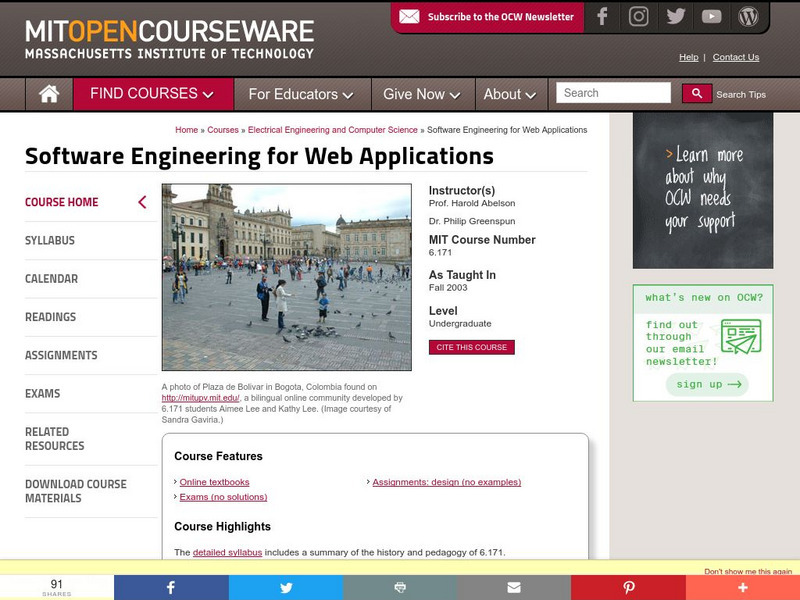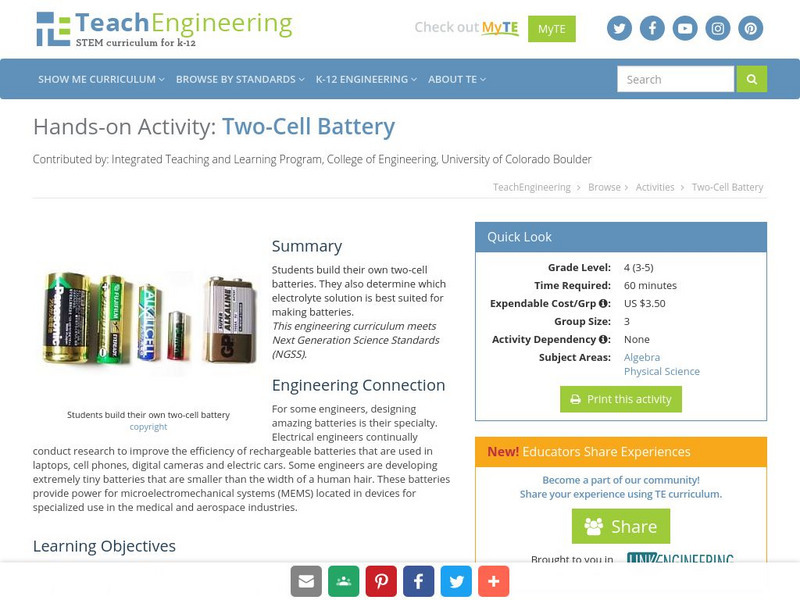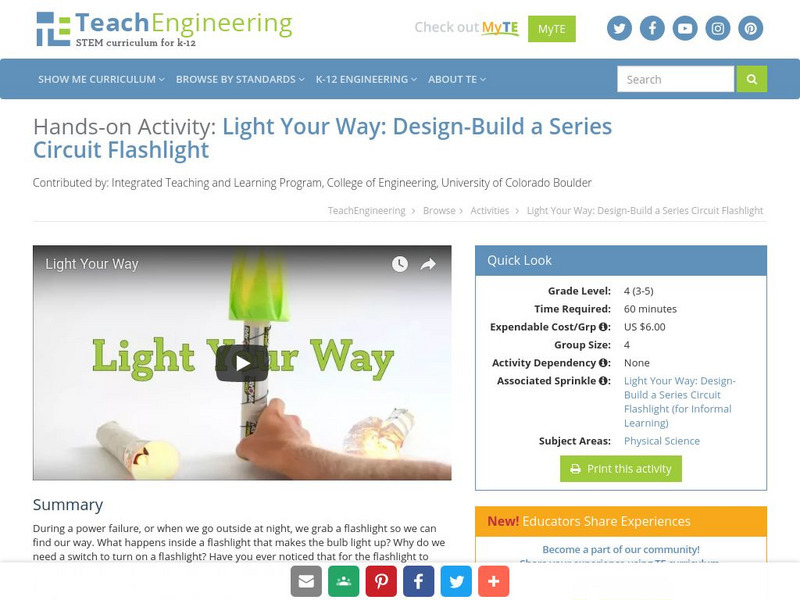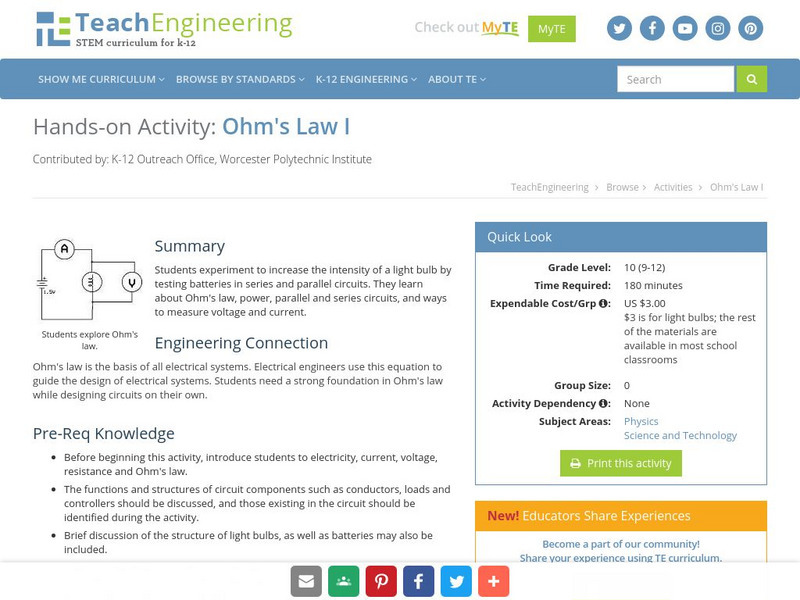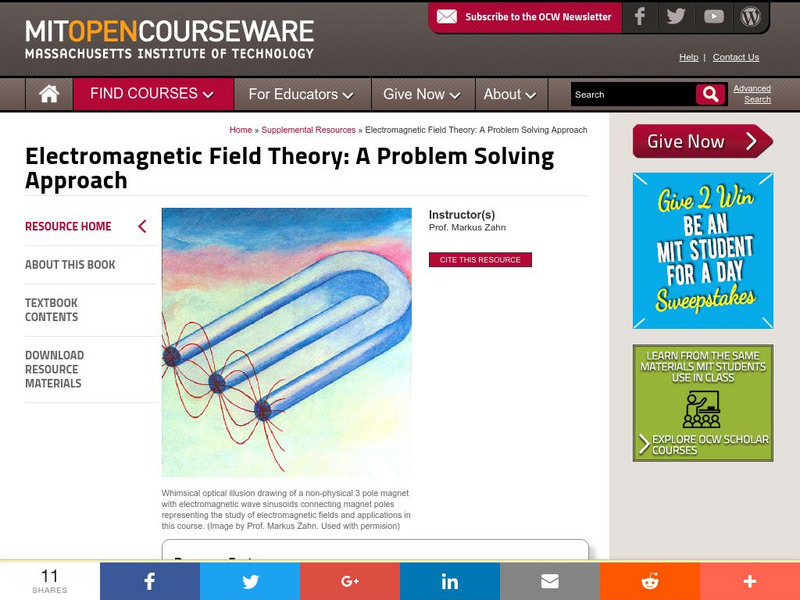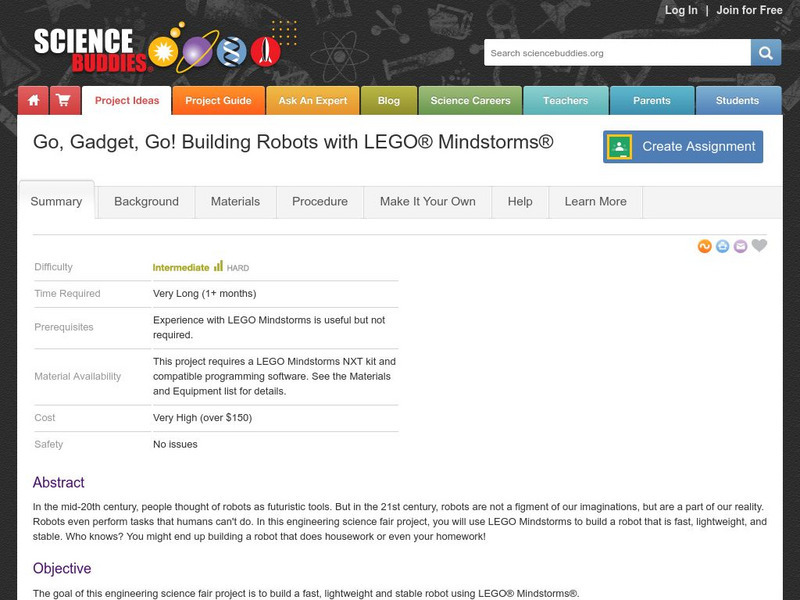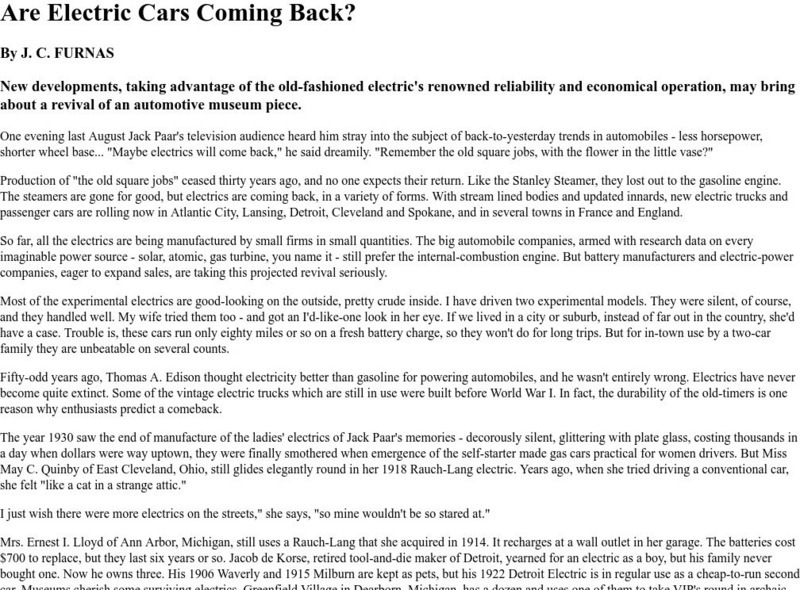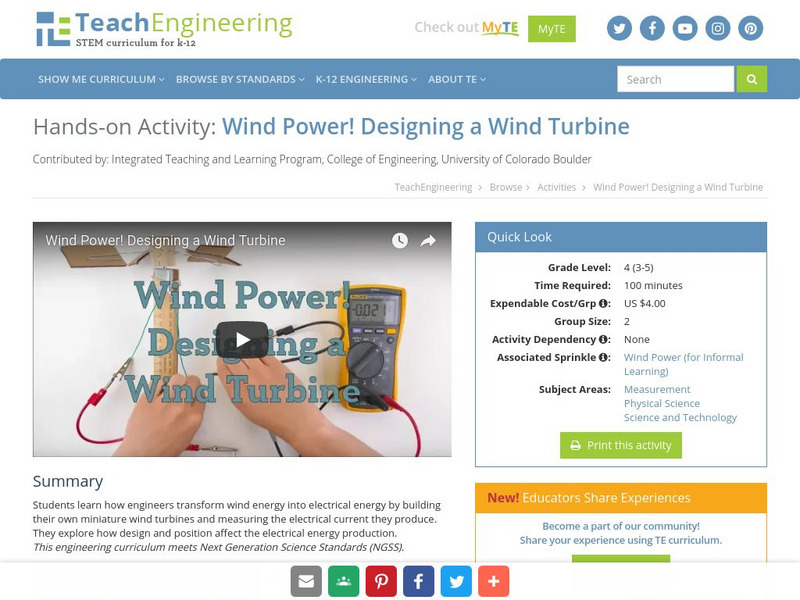TryEngineering
Try Engineering: Conveyor Engineering
Students learn about the engineering design process as they design, build, test, and evaluate a conveyor system made with everyday items than can move pieces of candy 4 feet including a 90 degree turn. The objective of the instructional...
National High Magnetic Field Laboratory
Magnet Academy: Steam Condensing Engine 1769
Few inventions have affected human history as much as the steam engine. Without it, there would have been no locomotives, no steamers and no Industrial Revolution.
Robin Chew
Lucid Cafe: Nikola Tesla
Learn here about Nikola Tesla, nventor, electrical engineer, mechanical engineer, physicist, and futurist best known for his contributions to the design of the modern alternating current electricity supply system.
PBS
Pbs Learning Media: Off the Grid
This interactive activity produced for Teachers' Domain presents users with three hypothetical scenarios in which they are challenged to design a wind power system that will meet their electrical needs.
Science Buddies
Science Buddies: Career Profile: Power Distributors and Dispatcher
Science Buddies profiles careers you perhaps never even considered. Do you know what a power distributor and dispatcher does? Someone has to control the flow of electricity along the transmission lines to be sure nothing takes the power...
PBS
Pbs Learning Media: Solar House
In this What's Up in the Environment? video segment, an electrical engineer in Virginia and his 13-year-old son explain how they produce electricity in their home. [3:58]
Massachusetts Institute of Technology
Mit: Open Course Ware: Software Engineering for Web Applications
This course gives students some experience in dealing with the challenges that are unique to web applications, such as concurrency and security risks.
TeachEngineering
Teach Engineering: Two Cell Battery
In this hands-on activity, students build their own two-cell battery. They also determine which electrolyte solution is best suited for making a battery.
TeachEngineering
Teach Engineering: Light Your Way
When there is a power failure, or when we go outside at night, we grab a flashlight so we can find our way. What happens inside a flashlight that makes the bulb light up? Why do we need a switch to turn on a flashlight? Have you ever...
TeachEngineering
Teach Engineering: Ohm's Law I
Students will work to increase the intensity of a light bulb by testing batteries in series and parallel circuits. It analyzes Ohm's Law, power, parallel and series circuits, and ways to measure voltage and current.
Massachusetts Institute of Technology
Mit: Open Course Ware: Resources: Electromagnetic Field Theory
College-level electrical engineering textbook starting from the Coulomb-Lorentz force law on a point charge. Sample problems that reinforce the content are found at the end of each chapter. Includes downloadable excerpts of the textbook...
Massachusetts Institute of Technology
Mit: Inventor of the Week: Nikola Tesla: The Electro Magnetic Motor
Use this site to learn about the inventor of the electro-magnetic motor, Nikola Tesla. Find out why Tesla's experimentation with alternating current was so important to later inventions and use of electricity.
University of Houston
University of Houston: Engines of Our Ingenuity: Fleming's Electric Valve
Provides background information on the Edison Effect and then discusses Fleming's invention.
TryEngineering
Try Engineering: Electric Messages: Then and Now
Lesson investigates electronic communication from the Morse Code system to text messaging. To learn about this, students construct simple circuits, send messages to each other, and explore the history and impact of communication.
Creative Science Centre
Creative Science Centre: Perhaps the Simplest Homemade Generator in the World
This very simple, but effective generator shows in a wonderfully engaging way the fundamentals of electricity generation. The generator is made from a coil of wire wound around the outside of a plastic 35mm-film can. The two coil ends...
Creative Science Centre
Creative Science Centre: Wind and Wave and Other Power
A collection of links to projects and information on how to make different types of windmills, and a wave powered electricity generator.
University of Kentucky
Elecroscope Lab
This site is actually a lab from the University of Kentucky Electrical Engineering Department. It is an excellent experiment that can be done at the high school level.
Science Buddies
Science Buddies: Go, Gadget, Go! Building Robots With Lego Mindstorms
In the mid-20th century, people thought of robots as futuristic tools. But in the 21st century, robots are not a figment of our imaginations, but are a part of our reality. Robots even perform tasks that humans can't do. In this...
Other
Econogics Co.: Are Electric Cars Coming Back?
This site from the Econogics Co. provides an 1960 article from Saturday Evening Post, which touted electric cars even then. This is a long and interesting article (unfortunately no photos), which contrasts sharply with today's "future...
TeachEngineering
Teach Engineering: Wind Power!
Students learn how engineers transform wind energy into electrical energy by building their own miniature wind turbines and measuring the electrical current it produces. They explore how design and position affect the electrical energy...
TryEngineering
Try Engineering: The Power of Graphene
In this engineering instructional activity, students learn about nanotechnology, graphene, and its electrical properties and applications. Teams of students test graphene to determine whether it is an electrical conductor or insulator,...
Cosmo Learning
Cosmo Learning: Principles of Digital Communications I
A collection of video lectures from a course introducing students to the theory and practices in digital communications. Webpage includes twenty-four lectures from a professor at the Massachusetts Institute of Technology. Lectures vary...
Cosmo Learning
Cosmo Learning: Advanced Analog Integrated Circuits
A collection of video lectures from a course introducing students to the advanced analog integrated circuits. Webpage includes twenty-seven lectures from a professor at the University of California, Berkeley. Lectures vary in length and...
TeachEngineering
Teach Engineering: Powering the u.s.
This lesson provides students with an overview of the electric power industry in the United States. Students also become familiar with the environmental impacts associated with a variety of energy sources.






